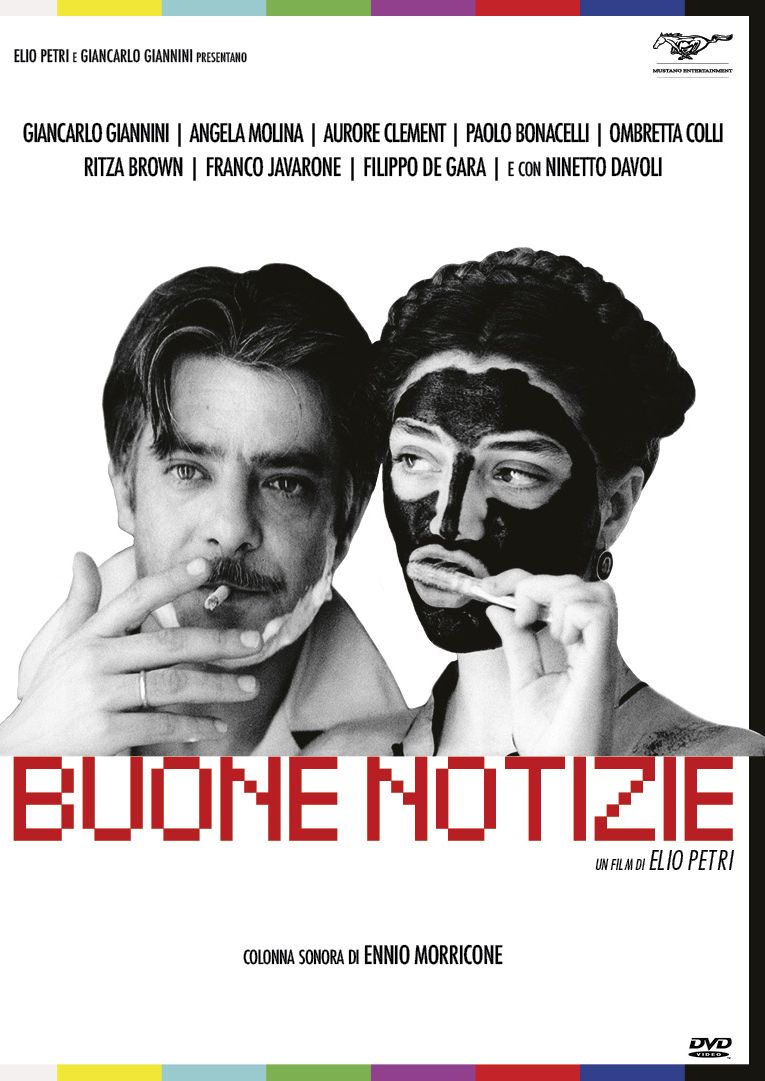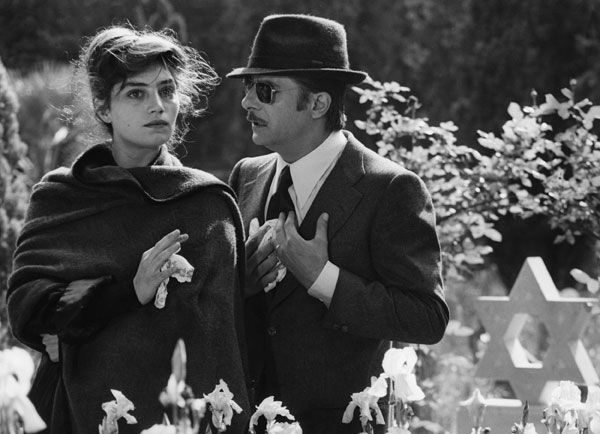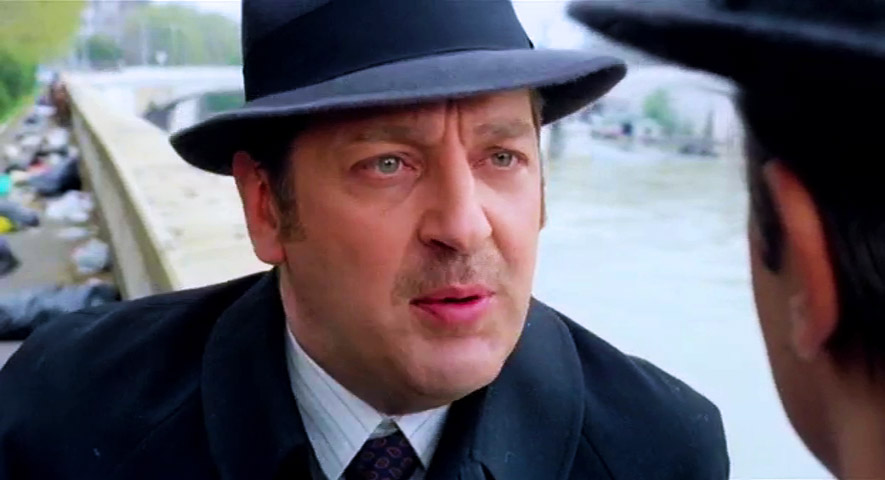”Elio Petri's latest film is a testament that contains a silent and desperate cry.
The Boss
This article contains spoilers (plot previews) from start to finish, it is better to watch the film first and then come back to read the article.
In a Rome distressingly full of garbage everywhere, the tragedy of a ridiculous man takes place, indeed, of a ridiculous and hypocritical humanity, increasingly prey to the ego and the empty narcissism that characterizes the present times.
The protagonist, unnamed, is the embodied symbol of a sad and childish humanity, which feeds only on materialism, selfishness, meaningless sex, where values are the shadow of themselves, now only a Catholic heritage cited only to save the appearances and to silence one’s own illusory conscience.
The inversion of habits and a new fierce feminism are at the door, the metaphorical “pants” are now female-owned, and the feminization of the male figure is already underway: it is today.
In this devastated and devastating society, he moves, very badly, like the worst fish out of water, the unnamed person played by Giannini, a slimy little man who has been entrusted with a leadership role in a large television station, all too easily imaginable. which broadcasting may be.
This homunculus, who spends his life between pathetic victimism and the constant presence of the TV news that emit only terrorism, is the center of a surreal story that is colored with thrilling.
He is approached one day by an old school friend now almost forgotten, who confesses his fear of being soon killed by an unknown association that, for some unclear reason, has targeted him in order to eliminate.
Gualtiero, the strange character played by Paolo Bonacelli, seems to have a strong attraction towards the “unnamed” calling him his best friend, constantly looking for him and also pushing him into his wife’s arms, with whom he has a relationship of mutual maximum “freedom”, saying happily that the two can fraternize since he will soon be killed and declares himself only interested in the practice of masturbation, a fact that seems to be reinforced by a manual that he always carries with him.
The unnamed man has a young wife, a teacher, who often has childhood or adolescent behaviors and with whom he lives a relationship with continuous contrasts but in which the sexual component is always alive.
Despite this, the unnamed one continuously and embarrassingly seeks confirmation of his charm from other women, always trying to circumvent them to satisfy his own narcissism, arriving then to never reach anything because, as said by Ada, Gualtiero’s wife, the unnamed is not other than a moralistic mentalist who cannot naturally enjoy anything in life, not even 10 minutes of liberating sex.
The relationship with the rediscovered Gualtiero turns out to be more and more upsetting for him, who begins to suspect an interest that goes beyond friendship. He will also reveal that he is deeply in trouble with the fixation of his friend, who lives in expectation of his killer because the nameless himself has a mad fear of dying.
No defect is missing in this character never mentioned by name, he is the perfect allegory of all human worthlessness and will come to fully reveal his hypocrisy when his wife, who had declared him to be pregnant, confesses to him that her son is from Gualtiero, with whom she had an affair because Gualtiero reminds her of the unnamed.
Gualtiero will finally be killed and the unnamed will go to the hospital where he left his friend, acting a pathetic scene in the hope of exonerating himself from a possible murder charge.
The policeman who interrogates him at the hospital, being strongly struck by this hypocritical recitation, begins to doubt that the two could have an affair and, laughing, throws it in the face of the homunculus, who, angry as usual, is fearing about that to be true inside.
The film ends in the usual park where the staff of the TV station goes during the typical “bomb alarms”. It is precisely these scenes in the park that moistly point the finger at how much humanity has been reduced to a childish mass of never-grown-up adults.
In the last scene, the unnamed person will open an envelope that Gualtiero left him, on which it says “not to open” and which contains other matryoshka envelopes with the same wording and at the end a series of tickets always written “not to be opened”, which unnamed / humanity will try to throw away and, following an afterthought, collect, as a last resort to find himself / herself.
The symbolic quotation is still directed to the famous Aldo Moro’s memorial, already mentioned in the finale of his previous work, ‘Todo Modo’, which makes it clear that most likely we are facing the second chapter of a trilogy of which his unfinished “Who enlightens the Vast Night “was the final chapter that, perhaps, we will never see.
The acting cast is excellent: we find a Giannini in great shape, a Bonacelli perfectly in part, the likeable Ninetto Davoli in a very marginal role and an exhilarating Franco Javarone in the policeman’s role.
The mysterious female side makes use of a young Angela Molina, very good, in the part of Fedora, the young wife of the unnamed, Aurore Clément, excellent in the role of Ada, wife of Gualtiero and a surprising and fascinating Ombretta Colli in the role of Tignetti, the colleague of the unnamed. There is an appearance of the young and attractive Ritza Brown in the role of Benedetta, a friend of Fedora.
A role was also proposed to Giorgio Gaber, who refused, proposing his wife Ombretta Colli instead.
Of all Petri’s films, this is certainly his saddest and the most disconsolate act of denunciation, which arrived almost on tiptoe at the end of a great career dedicated to stripping humanity of hypocrisy and Catholic provincialism and respectability.
After the lucid but angry analysis carried out in the previous “Todo Modo”, sparkling even in its being deeply cloaked in Jesuit darkness, in Good News, as happens to its protagonist, Petri seems unable to find peace and does not see a possible solution to this rotten and twisted within.
The rivers of garbage present everywhere, streets, parks, sidewalks, along the Tevere river and on the beaches, are the clearest and most obvious symbol of what humanity is reducing itself to and at the same time they are the symbol of mismanagement that the “dark powers” leading of our society have been imposing on us for years, annihilating the human soul, forced to this image of rot and ugliness.
The female figure is represented as a sort of Modiglianesque sculpture which, with a mysterious playful smile (and without refraining from launching some salacious critical judgment), contemplates the childishness of this humanity made mad by preconceptions and social engineering, those tortures that humanity itself tolerates and self inflict to continue serving a ridiculous social order that has no other purpose than to ruin humanity itself.
With this last desperate act of love, Petri hopes to awaken humanity from this sordid numbness of convenience, before it arrives at the inevitable self-destruction that we are witnessing right now, at this very moment.
Trailer from “Good News”




















